

Santiago Bernabéu died in the 1970s. Before his death, Miguel Munoz left the team after coaching it for 14 years. The Club’s 75th Anniversary celebration didn’t receive much support. The decade saw Real Madrid play against Castilla in the final of the Spanish Championship as well as a transitional period that followed Bernabéu’s death.
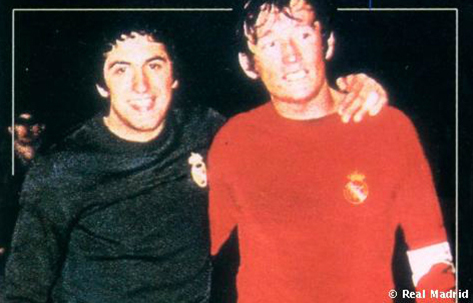
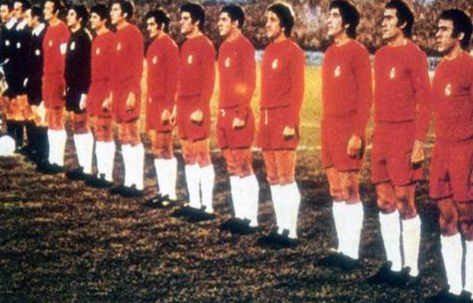
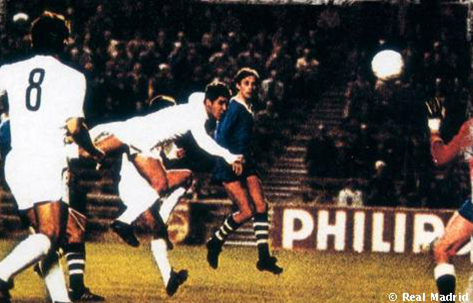
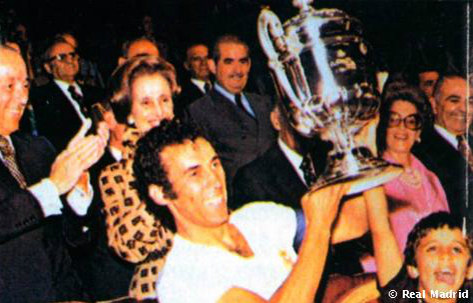
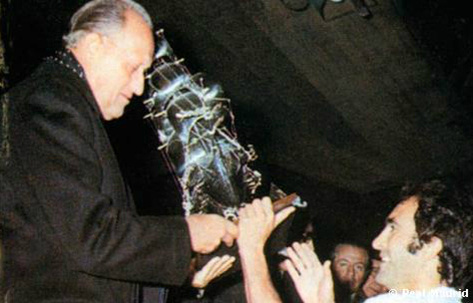
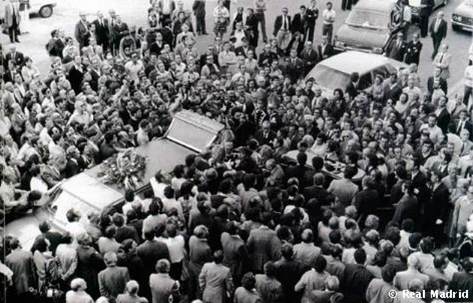
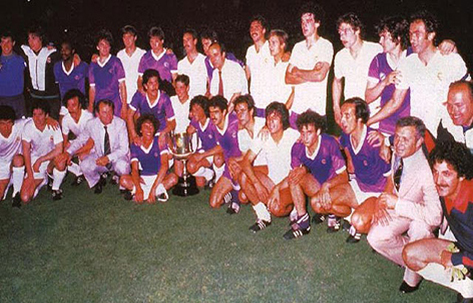
UEFA CUP WINNER'S CUP FINALISTS
Real Madrid made their debut in the no longer existent UEFA Cup Winner’s Cup in the 1970/71 season. They reached the final against Chelsea by defeating Hibernians, Wacker Innsbruck, Cardiff City and PSV Eindhoven. Both sides had to play the game twice at the Greek Karaikiris Stadium because the first match -held on 19 May 1971- ended in a 1-1 draw and neither team was capable of scoring the winning goal during overtime. The second clash took place two days later and Chelsea won 2-1.
ARIAS NAVARRO DOESN'T APPROVE THE PROJECT FOR A NEW STADIUM
On 8 September 1973, Real Madrid announced their intention of demolishing the Santiago Bernabéu Stadium in order to build a new venue with a capacity for 125,000 people and a parking lot beneath it for 8,000 cars. Mayor Carlos Arias Navarro’s refusal to reclassify the plot of land and the letter by lawyer Luis Pascual Estevill against the project that was published in newspaper ABC put an end to the project.
MIGUEL MUNOZ'S GREAT PERIOD ENDS
Miguel Munoz became coach of Real Madrid in 1960 when Fleitas Solich left. He ended up winning nine leagues, two Cups of Spain, two European Cups and one Intercontinental Cup in 14 seasons. On 15 January 1974, Santiago Bernabéu ended Munoz’s period “because he had been suffering for too long”. Luis Molowny, a man from the Club, replaced a living legend.
PRELUDE TO THE GREAT RECOVERIES
The Santiago Bernabéu Stadium lived one of its most glorious nights on 5 November 1975. Real Madrid recovered from a 4-1 defeat in the first leg of the Last 16 round of the European Cup against Derby County. At the end of the second leg, the result was 4-1 for the Whites, which forced both teams to play overtime. Santillana scored the winning goal; this was the prelude to Real Madrid’s Great Recoveries.
NO SUPPORT FOR THE 75TH ANNIVERSARY CELEBRATIONS
The 75th Anniversary Celebrations had little support from the fans because of the team’s bad results and Bernabéu’s retirement to Santa Pola due to ill health. A tournament was organized between the national teams of Argentina and Iran, Moroccan side Mouloudia Chabia and Real Madrid. The little support was evident in a half-full, tedious match between Real Madrid and Argentina that the Whites won 1-0 thanks to a goal by Vicente del Bosque.
THE PATRIARCH DIES
Santiago Bernabéu died at his home on 2 Jericó Street on 2 June 1978 six days before his 83rd birthday. His death put an end to an extraordinary 35-year Presidency at Real Madrid. Many condolences were received and deposited at the Club. A memorial service was held on 3 June in his village, Almansa, where he is buried.
LUIS DE CARLOS TAKES OFFICE AS PRESIDENT
After a brief period as interim President, Raimundo Saporta called for elections. The Club’s treasurer, Luis de Carlos, resigned in order to run for President. 26 July 1978 was the deadline for candidates to apply in order to run for office. De Carlos submitted 3,352 documents endorsing his candidacy, while the rest -gynecologist Campos Gil and florist José Daguerre- didn’t get the minimum number required in time. This called off the election and Luis de Carlos was proclaimed President of Real Madrid.
THE WHITEST CUP FINAL
On 4 June 1980, the Santiago Bernabéu hosted the Cup final between Real Madrid and Castilla, the Club’s second team, created on 21 July 1972. Castilla managed to defeat four First Division teams -Hércules, Athletic Bilbao, Real Sociedad and Sporting Gijon- to get to the final of the Spanish Championship. Real Madrid defeated Castilla -coached by the sorely missed Juanjo- 6-1.
BEST EUROPEAN TEAM OF 1980
France Football named Real Madrid the Best European Team of 1980. The jury took into account the two national titles the team won that year -the League and the King’s Cup- and the fact that they reached the semifinals of the European Cup that season.